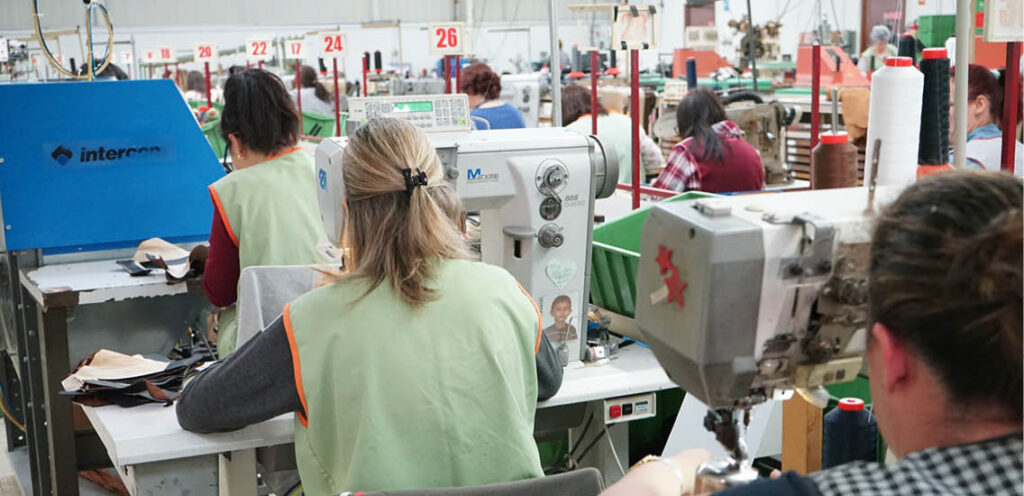Established in 1957, Fábrica Netos is a family-run footwear manufacturer based in São João de Madeira that typically caters to foreign private labels.
Established in 1957, Fábrica Netos is a family-run footwear manufacturer based in São João de Madeira that typically caters to foreign private labels. Its main markets are Northern and Central Europe, Russia, and North America. The company is driven by its dedication to values of quality and tradition. Quality is a key focus of the master shoemakers at Netos, and thus it garners interest from high fashion labels that require top quality and comfort in their products.
The focus on quality has also helped Netos Shoes secure and maintain long term business relationships with clients, some of which have spanned several decades. In addition, the company also puts great emphasis on maintaining traditional aspects of business that are intangible, such as family values, which denote Netos’s long standing commitment to the welfare of its employees, some of whom have been with the company for over 50 years.
The company also prides itself for keeping up with global trends in design and technology of footwear manufacturing, while maintaining traditional craftsmanship and classic silhouettes.
Alongside ethnographic findings and outcomes, the investigation has also focused on uncovering material facets of traditional manufacturing that are unconventional, out of general view, or discarded, for the purpose of bringing original perspectives, and to look further into their potential as generative resources for future contextualization. The archaeological aspect of this exercise is intuitive, and entails an approach to engagement underlined by curiosity, with a view to augment the likelihood of encountering desired artefacts and to be sensitive to their prospective scope as objects of design and art, including the potential to be exhibited as such.

Established in 1957, Fábrica Netos is a family-run footwear manufacturer based in São João de Madeira that typically caters to foreign private labels.
Established in 1957, Fábrica Netos is a family-run footwear manufacturer based in São João de Madeira that typically caters to foreign private labels. Its main markets are Northern and Central Europe, Russia, and North America. The company is driven by its dedication to values of quality and tradition. Quality is a key focus of the master shoemakers at Netos, and thus it garners interest from high fashion labels that require top quality and comfort in their products. The focus on quality has also helped Netos Shoes secure and maintain long term business relationships with clients, some of which have spanned several decades. In addition, the company also puts great emphasis on maintaining traditional aspects of business that are intangible, such as family values, which denote Netos’s long standing commitment to the welfare of its employees, some of whom have been with the company for over 50 years. The company also prides itself for keeping up with global trends in design and technology of footwear manufacturing, while maintaining traditional craftsmanship and classic silhouettes.
Alongside ethnographic findings and outcomes, the investigation has also focused on uncovering material facets of traditional manufacturing that are unconventional, out of general view, or discarded, for the purpose of bringing original perspectives, and to look further into their potential as generative resources for future contextualization. The archaeological aspect of this exercise is intuitive, and entails an approach to engagement underlined by curiosity, with a view to augment the likelihood of encountering desired artefacts and to be sensitive to their prospective scope as objects of design and art, including the potential to be exhibited as such.
The project “Anti-Amnésia: Investigação em Design como agente para a regeneração e reinvenção, narrativas e materiais, de culturas e técnicas de manufactura portuguesas em desaparecimento” (POCI-01-0145-FEDER-029022) is supported by Competitiveness and Internationalisation Operational Programme (POCI), under the PORTUGAL 2020 Partnership Agreement, through the European Regional Development Fund (ERDF) and through national funds by the FCT – Fundação para a Ciência e a Tecnologia.